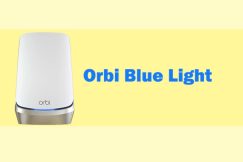Here are five foods that may not be as healthy as their marketing claims make them out to be, curated by https://www.kiwicasinos.io/.
- Granola and granola bars
People have championed granola and granola bars as “healthy” foods for decades. Even though some granolas and granola bars are quite nutritious, many are packed with added sugar and very high in calories. For example, a 2/3-cup (67-gram) serving of Nature Valley Oats and Dark Chocolate Protein Granola contains 7 grams of added sugar and 290 calories, while Quaker Chewy Yogurt Granola Bars pack 10 grams of added sugar per bar (1, 2).
The recommended Daily Value (DV) for sugar is 50 grams for a person who consumes 2,000 calories per day, according to the Food and Drug Administration (3Trusted Source). For optimal health, it’s best to limit your added sugar intake as much as possible, as consuming too much added sugar can contribute to an increased risk of many health conditions in both adults and kids.
- Flavored yogurts
Yogurt can be a healthy choice, but it’s best to opt for unsweetened yogurt whenever possible. Flavored and “fruit on the bottom” yogurts can contain a surprising amount of sugar in just a small serving. For example, a 5.3-ounce (150-gram) container of Dannon Strawberry Fruit on the Bottom yogurt contains a hefty 15 grams of added sugar. Yogurts that have candy toppings and “flip-style” yogurts can have even more.
Instead of choosing sweetened yogurt, try topping unsweetened yogurt with fresh fruit for a bit of natural sweetness.
- Protein drinks and bars
Many people are under the impression that the higher the protein content of a food or beverage, the healthier it is. Some foods that are naturally high in protein, like fish, eggs, and beans, are without a doubt healthy choices. However, items like protein bars and protein shakes may not be as healthy as some people assume.
Many healthy people who consume balanced diets don’t need to get extra protein through supplements. Nevertheless, active individuals and those who follow vegetarian and vegan diets may benefit from more protein in their diets.
- Sports drinks and energy beverages
While companies market sports drinks and energy beverages as ways to boost energy and athletic performance, these beverages are unnecessary for most people. They can also be high in ingredients like added sugar, artificial colors, and large amounts of stimulants, such as caffeine. While some athletes do need to replenish lost nutrients with sports drinks after intense exercise, most people who perform moderate exercise or just normal daily activity do not need to chug sports drinks to stay hydrated and give you enough energy to play games at casino online gambling.
Many sports beverages contain a shocking amount of sugar. For example, a 20-ounce (591-mL) bottle of Fruit Punch Gatorade contains 34 grams of added sugar (10). Likewise, energy drinks can be extremely high in added sugar. The popular Monster Energy drink contains 54 grams per 16-ounce (473-mL) can. That’s higher than the DV for added sugar. These beverages are heavily marketed toward children and adolescents, which is alarming because researchers have linked drinking sweetened beverages with health issues, including high blood pressure, fatty liver, and obesity, in kids and teens.
- Gluten-free snack foods
For people with gluten-related disorders, avoiding gluten is necessary. However, even if a food is labeled as gluten-free, it’s not necessarily healthier than gluten-containing foods. Some processed gluten-free snack foods and sweets contain just as much, if not more, calories and added sugar as other snacks. Additionally, studies show that gluten-free snack foods and other gluten-free items tend to be lower in protein, fiber, and certain vitamins and minerals than their gluten-containing counterparts. They’re also generally more expensive



